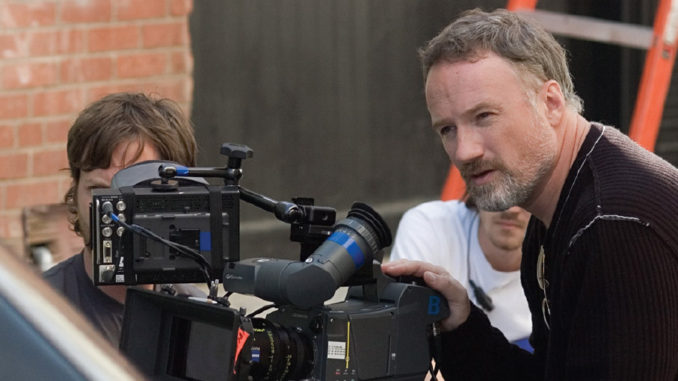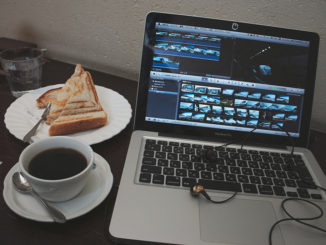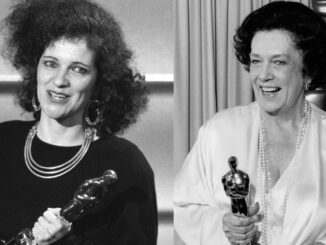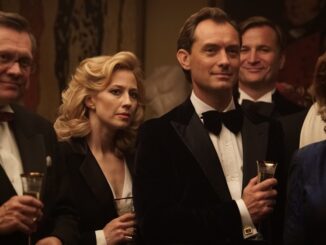
by Michael Kunkes
Director David Fincher has made some of Hollywood’s darkest themed films: Seven, The Game, Fight Club and Panic Room. Now, with Zodiac, he and editor Angus Wall are taking on another disturbing subject–– the San Francisco Bay Area’s notorious Zodiac Killer––while finding the light at the end of the digital tunnel. Fincher spoke with CineMontage about his new film.
CineMontage: What attracted you to the story of the Zodiac Killer?
David Fincher: For me, Zodiac was so much a part of growing up in Marin County. A lot of Seven had to do with the fear that was instilled by Zodiac. It was the idea that monsters could be among us, that someone was out there, picking off stragglers. When you are seven years old, it’s a pretty big deal to have police cars following your school bus. The story was compelling to me, and that’s always my primary criteria.
CM: Why does the character continue to fascinate people?
DF: Zodiac was way ahead of his time as a marketer. I found the graphic nature of his letters fascinating, as well as his relentless taunting of law enforcement. He wanted to be talked about; he wanted people to wear his buttons. He was good at getting his message out.
CM: How do you balance a story like that and keep the audience interested?
DF: I don’t know. There are those, I am sure, who will tell you we didn’t. I just tried to go for the beats that I was interested in.
CM: How did you pick Angus Wall to edit Zodiac?
DF: Angus and I have worked together for many years––exclusively for the past couple––and on commercials. Beyond his skill and sensitivity with character, and his tireless pursuit of the most streamlined narrative, we’ve been talking about our all-digital pipeline for some time. And he was, in my mind, the only guy to lead this charge. We both hate tape, and with the Viper camera as a “performance harvesting” tool, and the S.two [digital field recorder system] as a “mastering device,” we could finally do it.
“The great thing about digital moviemaking is that for the first time in the history of motion pictures, everyone––from the cameraman to the hair and makeup people––is looking at the same 23-inch monitor… It’s just another way of democratizing information.” – David Fincher
CM: What was your day-to-day interaction like?
DF: Angus and I have a very intuitive relationship. I leave him alone because I trust what he does, and also because I want to see what he comes up with. So often, he can look at footage and say, “You didn’t mean that, you meant this.”
CM: Like Seven and Fight Club, Zodiac is very darkly themed. How does it differ from your other movies?
DF: This movie is very different for me in terms of the staging. There are not a lot of close-ups, because I wanted everything to play as wide as it possibly could. Most scenes are: Two guys walk into a room, sit down over a cup of coffee and then proceed to rip through six pages of dialogue. We were trying to be super-simple and super-direct and wanted audiences to form their own opinions of things, and not have to go, “Oh, that’s the killer; that’s the evil guy.”
CM: What was the reaction at Paramount and Warner Bros. to your workflow?
DF: I think that in the end, they were freaked out by little weird things, like, “Who’s going to handle the digital material?“ “What’s going to happen to these D.Mags [digital film magazines]?” “Where will they go?” The answer is that they’ll be dealt with in the same way that your single copy of your camera negative is dealt with: A production assistant delivers it somewhere in a van, and it’s ingested there. Once they realized they were going to have back-ups and copies of everything––and once they started seeing stuff happen on PIX [Private Internet Exchange firewall], which put everyone on the same page––they were sold.
CM: As a filmmaker, what did Zodiac mean to your craft?
DF: The great thing about digital moviemaking is that for the first time in the history of motion pictures, everyone––from the cameraman to the hair and makeup people––is looking at the same 23-inch monitor, reviewing a take and talking about the exact same thing, and that’s never been possible before. The idea was not to be as “digital” as we could for its own sake. The idea is to use everything that’s available to us to make the filmmaking process cleaner, keep everyone informed, and communicate better so we can get more of what we want. It’s just another way of democratizing information.






